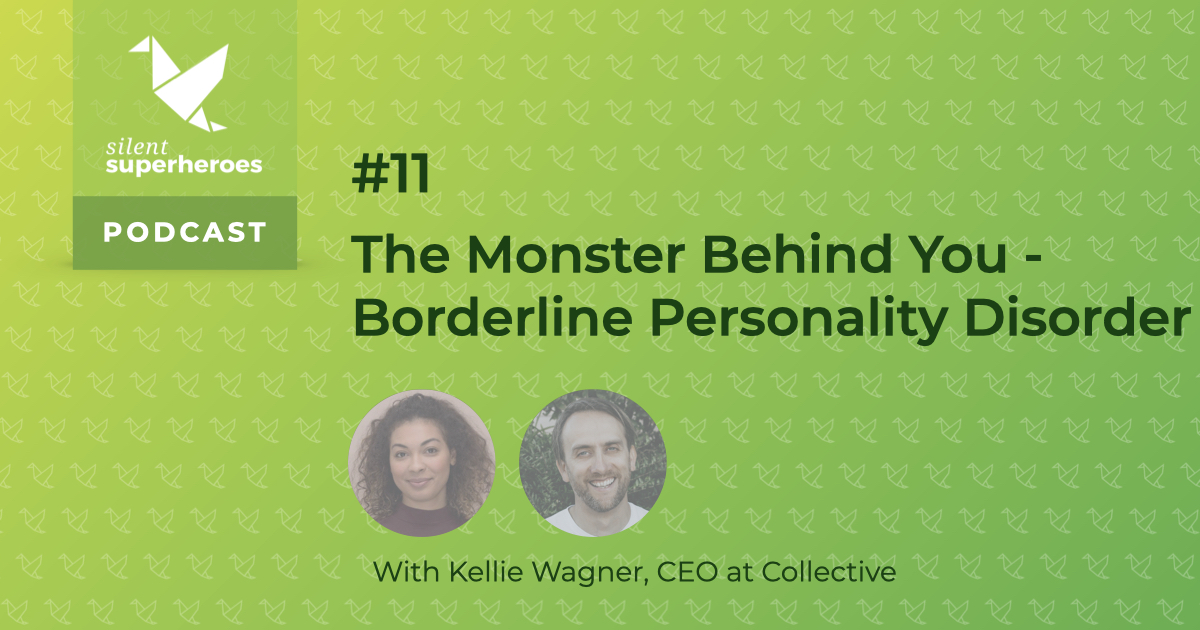“It’s not you, you just don’t see the giant monster behind you that I’m reacting to”
Kellie Wagner, CEO @ Collective
What do you know about Borderline Personality Disorder? The answer to that question for most people is “not a lot”. So, why do we know so little compared to other mental illnesses like anxiety and depression? One reason is that BPD only occurs in around 1% of the population, so you’re less likely to run into someone who has it. The more likely reason is that that people working with BPD don’t speak up.
Listen To Episode 11
Podcast: Play in new window | Download (Duration: 53:54 — 31.9MB)
Show Notes
Popular culture likes to portray BPD in the most extreme way possible, for example, Glenn Close boiling a pet rabbit in the movie Fatal Attraction. If that was the first thing someone might remember if you said “I have BPD”, would you go around telling people?
In this episode of Silent Superheroes, Kellie shares some of her personal experiences working with BPD, the tools she uses to manage it, and some of the ways it’s affected her career. Above all, we’ll learn that working BPD is manageable, and is compatible with forging a successful career.
Links
- Collective D&I Consultancy (website)
- NIMH Overview of Borderline Personality Disorder (resource)
- I Hate You, Don’t Leave Me by Jerold J Kreisman (book)
- Dialectical Behavior Therapy (resource)
- BPD Family (organization)
- Kellie’s social (LinkedIn)
About Working With BPD (Borderline Personality Disorder)
Borderline personality disorder is a mental health disorder that impacts the way you think and feel about yourself and others. It causes problems functioning in everyday life, for example, problems with self-image, difficulty managing emotions and behavior, and a pattern of unstable relationships.
People with borderline personality disorder, you have an intense fear of abandonment or instability, and may have difficulty tolerating being alone. On the other hand, inappropriate anger, impulsiveness and frequent mood swings may push others away.
There is an age component to Borderline personality disorder. Firstly, Borderline personality disorder usually begins by early adulthood. Secondly, the condition seems to be worse in young adulthood and may gradually get better with age. In conclusion, many people with this disorder get better over time with treatment and can learn to live satisfying lives.
Getting Support
Remember, the people you hear on Silent Superheroes are sharing their opinions about mental health and mental illness. They are not giving advice. For that reason, please consult with your care provider before making a change to your treatment approach.
It’s important to take your mental health seriously. Consequently, if you need to speak to someone you can call 1-800-273-8255, or text crisistextline.org on 741741. Both provide 24×7 confidential counseling to people in the United States. Worldwide visit http://iasp.info/resources/Crisis_Centres/
Because you listened to the podcast, you can help others find it by leaving us a review on iTunes. Or if you don’t use iTunes, leave a review on your favorite podcasting service.


